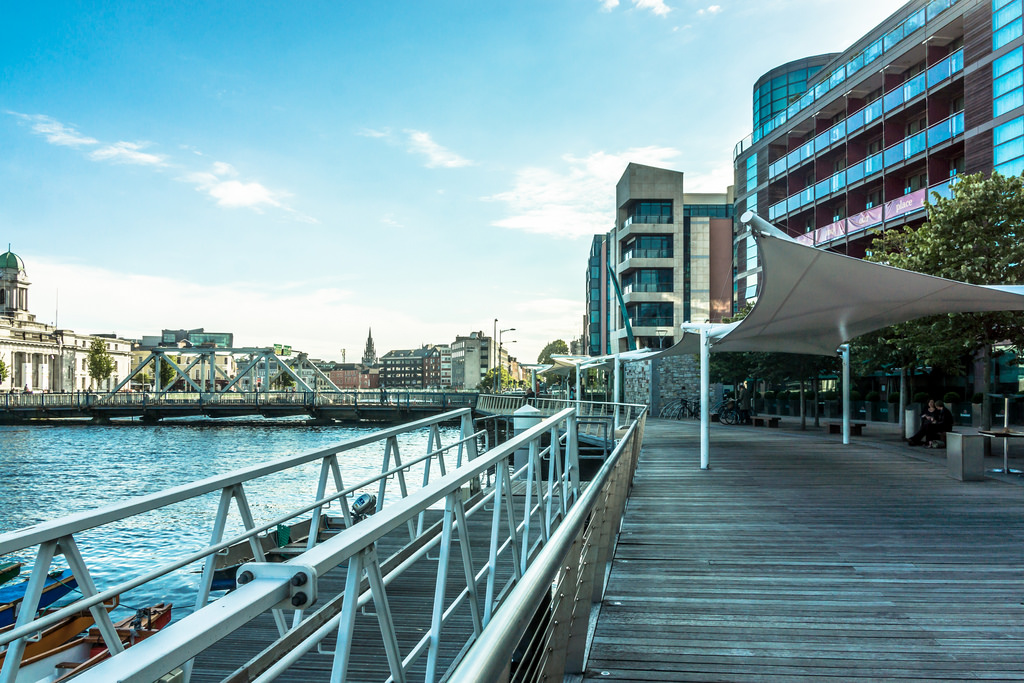
Dublin or Cork? Cork or Dublin? The two cities have had a long-standing rivalry as to which is the nation’s true capital. Dublin is home to Guinness, Google and the River Liffey; Cork can claim Apple, Murphy’s and the River Lee.
Dublin is Ireland’s biggest city. It has the National Concert Hall and a slew of music venues; three branches of the National Museum are in the capital, as is Croke Park and the Aviva Stadium. However, along with all these attractions, the “Big Shmoke” has heavy traffic, high rents and pricey pints.
Cork may be smaller, but the city has fantastic restaurants and vibrant nightlife, as well as easy access to the splendour of West Cork. All that, plus very colourful slang!
It is fair to say that graduates from across Ireland gravitate towards the capital. There is a perception that Cork has less to offer in terms of job opportunities. However, the reverse is often true – companies based here can find it hard to attract the talent they need. This makes things somewhat easier for jobseekers, particularly those with sought-after skills.
Let’s have a look at the top three reasons to consider calling the city on the Lee home.
Cork has a buoyant jobs market across a variety of industries. These include professional services, IT, pharmaceutical and medical device, manufacturing, tourism and hospitality.
The county is a science and tech centre. Munster gained over 5,000 new jobs last year – the bulk of them in Co. Cork. Here’s one example: Last year, GE announced they were investing €150m to create a 'BioPark’ in Ringaskiddy. This will lead to 500 jobs. Here's another: In early May Eli Lilly announced that they was investing €200m to expand the company's Kinsale manufacturing site. This is expected to create hundreds of jobs.
Multinationals in the county include Pfizer, GlaxoSmithKline and Johnson & Johnson. Apple has their European HQ in Cork. Siemens, McAfee, VMware, Amazon and the Marriott Group are all here too.
It won’t surprise you to learn that Cork is cheaper than Dublin. The biggest expense for many is rent. Across Dublin city, the average rent was an eye-watering €1,655 at the end of 2016. Cork’s rents have risen as well. However, the average rent for the same period was €1,096. In addition, restaurants, pubs, activities and attractions are cheaper too. If you are starting out in life, or raising a family, a move to the Rebel County may the smartest financial move to make.
Cork is more laid back than Dublin, but there’s always something to do and see. The city has fantastic nightlife, lively pubs and award-winning restaurants. There is plenty for culture vultures and music lovers too. There is a thriving music scene, several great theatres and cinemas, as well as the Firkin Crane, Ireland’s only dedicated dance theatre.
The Old English Market is a food lover’s first port of call. The market offers excellent grub from small traders and producers, with an emphasis on organic products. The city is also home to many highly regarded restaurants. These include the famous veggie restaurant Cafe Paradiso, the buzzing Market Lane, and the swish Orchids Restaurant at Hayfield Manor.
Let’s not overlook the manny, many festivals. The Jazz Festival attracts visitors from around the world. The World Book Fest has been running since 2004. Live at the Marquee hosts musical and comedy stars every summer. In October, Indie Cork celebrates independent film and music. And that’s just for starters.
Outside of the city, you can enjoy rugged beauty, a scenic coastline and sandy beaches. Ballinspittle, Clonakilty, Schull, Roscarbery and Skibbereen all have coveted blue flag beaches.
Given the glorious scenery, outdoor activities are popular. If you enjoy cycling, horse riding, golf, hiking, sailing or water sports, Cork has you covered.
Wherever you stand on the Cork versus Dublin divide (we love both!), you have to admit that Cork has a myriad of attractions and amenities. No wonder the Corkians are so proud of their city. They have every right to be!